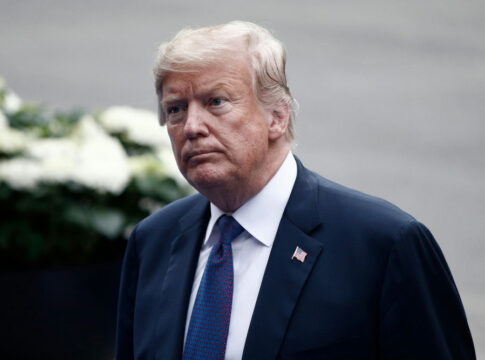The Trump administration has launched a lawsuit against New York City, challenging its sanctuary city status and shaking up the nation’s immigration debate once more.
Trump Administration Targets NYC’s Sanctuary Policies
In a bold legal maneuver, the Trump administration has filed a lawsuit against New York City, alleging that its sanctuary city policies unlawfully obstruct federal immigration enforcement. The lawsuit, filed in a Brooklyn federal court, argues that these policies violate the U.S. Constitution’s Supremacy Clause. The Trump administration, known for its staunch opposition to sanctuary jurisdictions, contends that cities like NYC undermine public safety and federal authority by refusing to cooperate with Immigration and Customs Enforcement (ICE) and Customs and Border Protection (CBP).
The lawsuit specifically targets NYC’s long-standing policies that limit local law enforcement cooperation with federal immigration authorities. These policies, originating in 1989, have been expanded over the years to include measures that restrict city officials from honoring federal immigration detainer requests and sharing certain information with federal agencies. The Trump administration’s legal challenge follows a high-profile incident involving the shooting of an off-duty CBP agent by an undocumented immigrant in Manhattan, an event that federal officials link directly to NYC’s sanctuary policies.
Key Players and Their Stances
The lawsuit has ignited a legal showdown between the Trump administration and New York City officials. President Donald Trump, Attorney General Pam Bondi, and the Department of Justice are leading the charge against the city. They argue that NYC’s sanctuary policies endanger public safety and are part of a broader effort by Democratic-led cities to resist federal immigration crackdowns. On the other side, NYC officials, including Mayor Eric Adams and Police Commissioner Jessica Tisch, staunchly defend the city’s policies, claiming they are crucial for maintaining community trust and protecting immigrant rights.
Mayor Adams has faced accusations of offering to assist federal enforcement in exchange for the dismissal of his own corruption charges, which he has denied. Meanwhile, New York Governor Kathy Hochul has criticized federal actions, emphasizing state and local autonomy. The lawsuit underscores the adversarial relationship between the Trump administration and Democratic city governments, intensifying the national debate over immigration enforcement.
Implications of the Lawsuit
The legal battle over NYC’s sanctuary policies holds significant implications for cities across the nation. Should the Trump administration prevail, sanctuary cities may be forced to alter or abandon their policies, reshaping the dynamics of local-federal interactions on immigration. A ruling in favor of NYC, however, could reinforce local autonomy and encourage other cities to maintain or expand their protections for undocumented immigrants.
The lawsuit also brings to the forefront concerns over public safety, community relations, and government legitimacy. Immigrant communities, law enforcement agencies, and the general public all stand to be affected by the outcome. The case could set a major precedent, influencing law enforcement practices, city governance, and the ongoing debate over federalism in the United States.
Expert Opinions and Analysis
Legal experts are closely watching the case, noting that the Supremacy Clause grants the federal government broad authority over immigration, but the Tenth Amendment limits its power to compel local action. While some argue that sanctuary policies are constitutionally protected as an exercise of local discretion, others contend they unlawfully obstruct federal law. The complexity of “detainer” requests is also highlighted, as courts have previously ruled that honoring them without a judicial warrant can violate constitutional rights.
Advocacy groups for immigrants defend sanctuary policies as essential for civil rights and public safety. In contrast, opponents, including some federal officials and law enforcement unions, argue that these policies endanger the public and undermine the rule of law. As the case progresses, it will undoubtedly shape the national conversation on immigration policy and the balance of power between federal and local governments.

